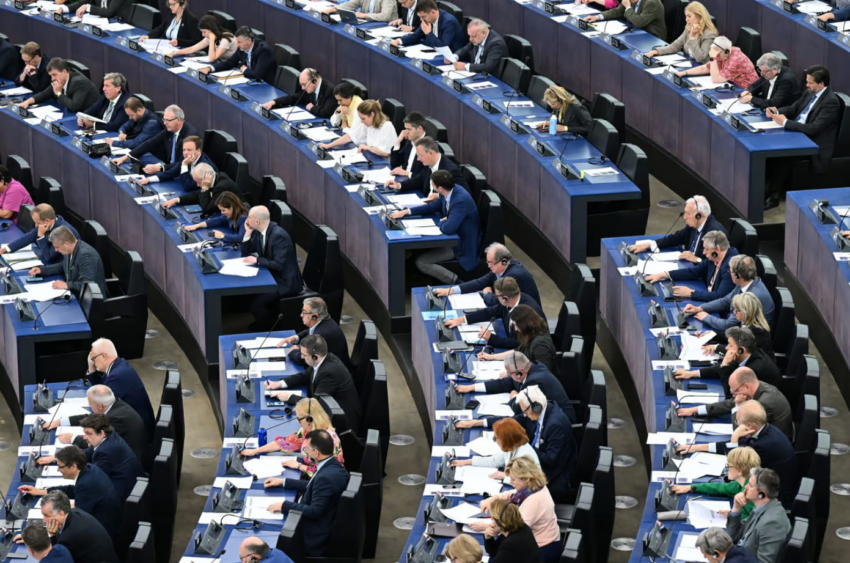Spain’s EU Council presidency benefits its AI policymakers: Spain can begin and perhaps finalize final discussions to enact the AI Act after the European Parliament’s vote last week.
The country has invested much in AI and prepared for regulation. The AI Act would cement Spain’s position as the EU’s AI hub once the U.K. exited in 2020.
It’ll be hard. Parliament and Council disagree on face recognition apps, with legislators wanting a ban and administrations wanting police carve-outs. The AI Act’s enforcement powers would target “high-risk” AI applications, which they disagree on defining.

Spain must justify any concessions to legislators.
In his Spanish Council presidency agenda speech last week, Prime Minister Pedro Sánchez prioritized AI. “We are experiencing a technological epoch,” he remarked. “The EU—and Spain—should remain leaders in AI and digital transformation. We need good rules.”
Recent technology advances may also strain negotiators. Generative AI systems, like ChatGPT, can produce visuals and sentences like a highly skilled person.
“Generative AI has become mainstream and made all the news headlines,” says a draft Spanish work program submitted to the EU Council earlier this month, acquired by POLITICO. “One of the main objectives of the Spanish Presidency” is AI regulation.
Spain has long been the EU’s AI pioneer, and its zeal for AI is unwavering. While smaller than France or Germany, its IT scene has created four $1 billion startups, including AI firm Devo. With its many native speakers in the Americas, Spanish presents a rich dataset for training chatbots of the future.
Spain now has a political elite ready to tackle AI. “The Spanish government wants to be the elite in Europe when it comes to AI regulation,” said Paul Van Branteghem, co-founder of Spain AI, a nonprofit promoting AI in Spain.
AI ministers are rare, but Spain has one. In January 2020, Deputy Prime Minister Nadia Calviño created the job for former AI entrepreneur Carme Artigas, a global advocate for European (and Spanish) AI.
“We don’t like the way where data is in the hands of private companies [as in the U.S.] or in the hands of the government, like in China,” Artigas told a Brussels-based lobbying organization Digital Europe event in early June. “The EU’s third way is the only way. That’s the only way to govern this technology.”

The government is hiring for its Council presidency. In March, Spanish economics ministry engineer Miguel Valle del Olmo traveled to Brussels to assist negotiate the AI Act.
The groundwork
Spain has been preparing at home to adopt the EU regulations beyond keynote speeches and attaché posts.
Spain’s “Digital Rights Charter” of 2021, which promoted non-discrimination and human control in AI systems, may have influenced the EU discussion on the AI Act.
The next year, Spain established an AI regulatory authority in A Coruña to monitor compliance with the future AI Act.
Developers like ChatGPT creator OpenAI will engage with authorities in the EU’s first “AI sandbox” to evaluate their compliance with the Act’s “high-risk” system limits. That should encourage enterprises to spend without worry of a large penalties following product launch.
“We remembered the drama that happened when GDPR got adopted,” said Artigas advisor Alberto Gago, referring to 2018 EU data-protection legislation. “Everyone asked: How do you comply?”
Spain’s digital regulatory power has increased with the Commission-backed European Centre for Algorithmic Transparency’s creation in Seville to investigate online recommendation algorithms.
That goes with a friendlier approach to Internet businesses than in other main EU economies. U.S. IT giants like Meta, Google, and IBM have been buying up Spanish startups and constructing data centers and offices around the nation.
The government plans to spend €330 million creating Spanish-speaking robot overlords. Calviño and Artigas worked with the 300-year-old Royal Spanish Academy, which includes Latin American academics, to create a Spanish-language corpus AIs can train on. They also helped Microsoft, Google, and Amazon integrate the Academy’s guidelines into their Spanish-speaking tools.

